Sleep Regression. It’s one of those terms you never knew existed until you became a parent. Next thing you know you’re hearing it everywhere! Baby swim class, local mom’s group & filling your Pinterest feed! If you’re wondering if this ubiquitous phrase is a current babies buzzword or a bona fide research-backed sleep phenomenon, you’re not alone. This article separates fact from fiction on sleep regressions: what they are, what causes them, and what you can do about them.
What are Sleep Regressions?
Sleep regressions are disruptions in sleep for a baby or toddler who was previously sleeping well. It’s when your baby starts waking more at night or his naps worsen out of the blue. These disruptions come at predictable times because they are associated with developmental milestones. Most babies and toddlers experience a few sleep regressions over the first 2 years of life, but you may not notice them if your baby doesn’t sleep well generally. (If your older toddler has suddenly started fighting nap time with a vengeance and you’re wondering if he’s outgrown napping, check out When Do Toddlers Stop Napping? or if you need help getting your baby to nap longer I can help with that too!)
What Causes Sleep Regressions in Babies?
Have you noticed that your baby temporarily slows down in one area of development, like speech, while he is expanding in another, like walking? Pediatric expert Dr. T. Berry Brazelton explains that a surge of growth in brain development that happens during a developmental milestone (like learning to walk) often coincides with another part of development slowing down or regressing (like speaking.) So what’s causing your baby’s current sleep regression could be a milestone he’s hitting like rolling over, standing or walking. It’s completely normal.
When Do Sleep Regressions Occur?
Sleep regressions follow a predictable sequence based on brain development, explains Dr. Brazelton. Because they coincide with developmental milestones, sleep regressions may be seen at 6 weeks, 4 months, 6-7 months, 8-10 months, 11 months, 12 months, 15 months, 18 months and 2 years old. Sounds like one long regression, right?
Before you throw in the towel, you should know most babies and toddlers don’t experience each and every regression. Plus, if your baby has good sleep habits before a sleep regression hits, he will fall back into his rhythm after it passes. Sleep regressions are over just as quickly as they arrive. (Well, except for the 4-month sleep regression…you can read about that here.)
How Long Do Sleep Regressions Last?
A sleep regression can last 1-2 weeks, which is a very long time when you’re sleep deprived. It helps to stay positive and think of what your baby is accomplishing during the day. Has he recently started sitting up or rolling over? Focusing on the milestones can help you stay relaxed and patient. When you can attribute your disrupted sleep to a temporary cause, like a sleep regression, it eases your worry and confusion.
How Can I Help My Baby Through a Sleep Regression?
My brand new ‘Sleep Regression Survival Guide’ explains exactly what to do to help your baby sleep well during a regression. It has proven tips that help each sleep regression pass as quickly as possible. It also explains the best ways to ease your little one’s separation anxiety and tells you what to do when your baby is standing or sitting up in the crib, instead of sleeping!
It’s totally free and you can get it here.
Sleep trained babies and toddlers are also less affected by sleep disruption from sleep regressions so check out my toddler and preschooler sleep training course for all the help you need.


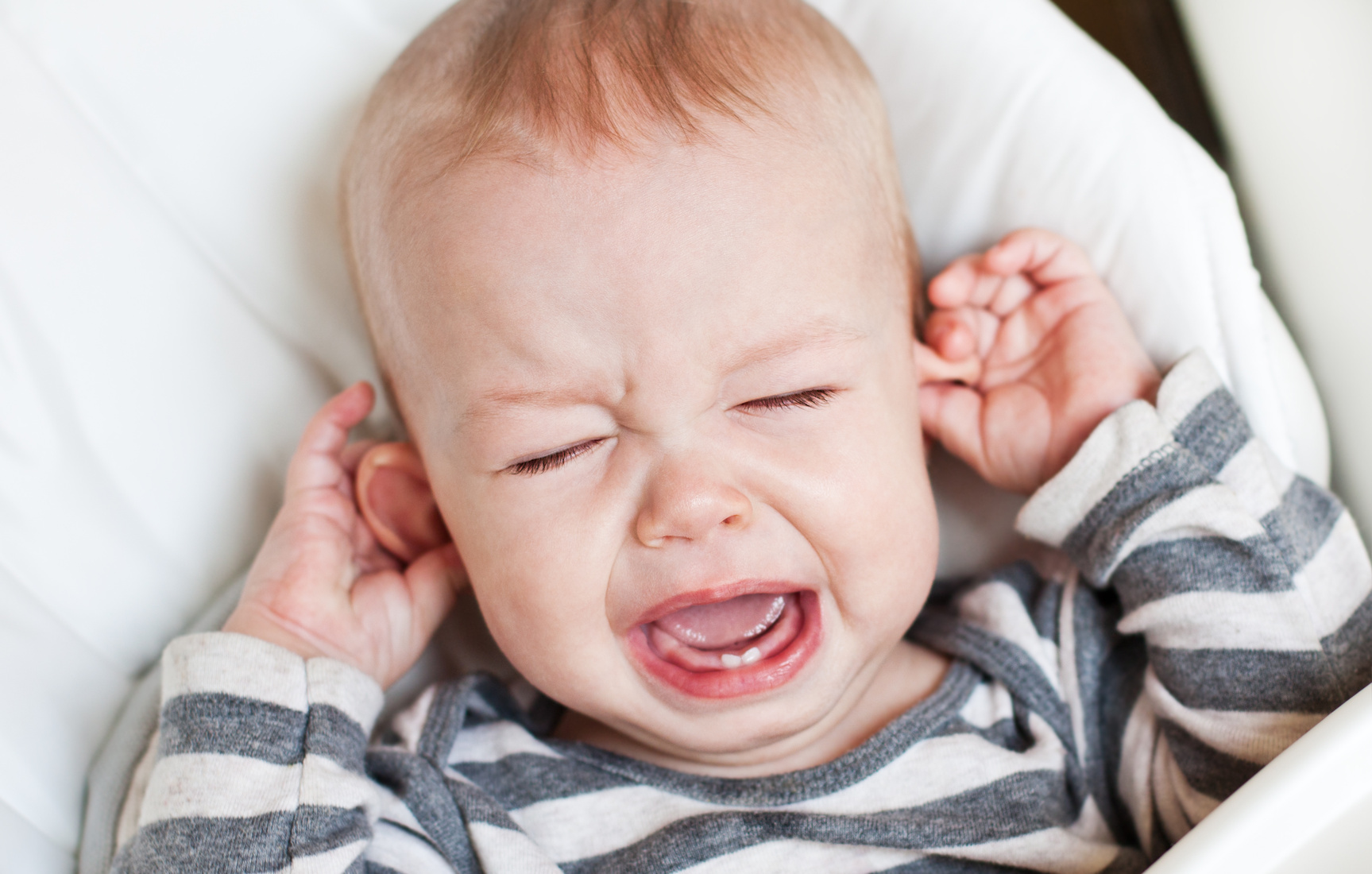
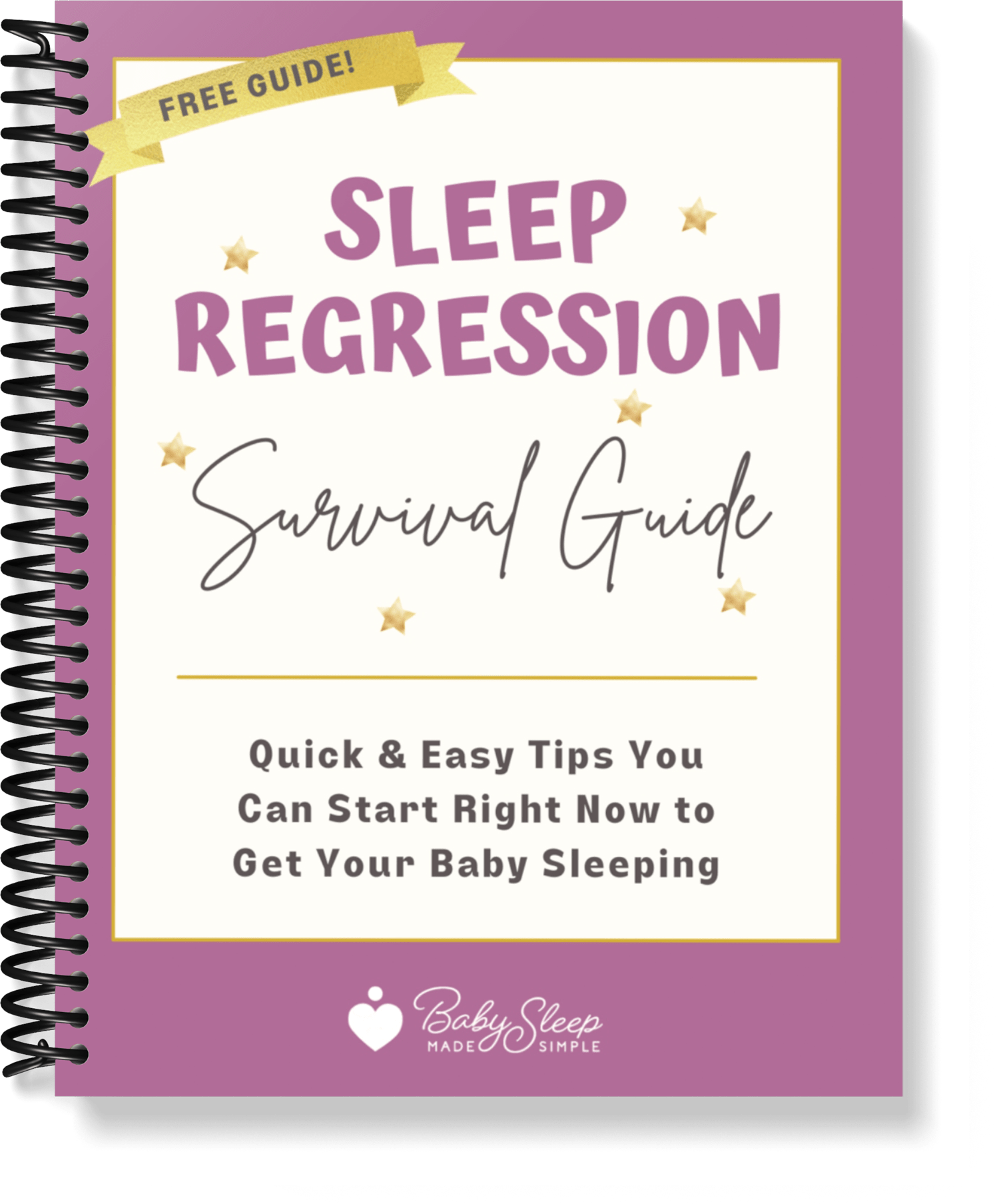
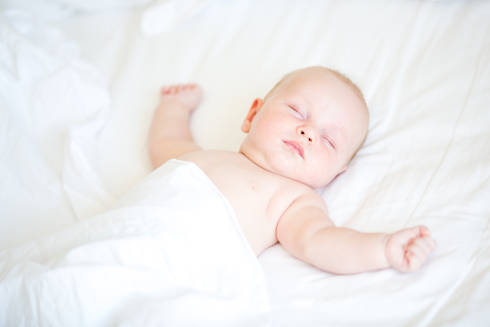

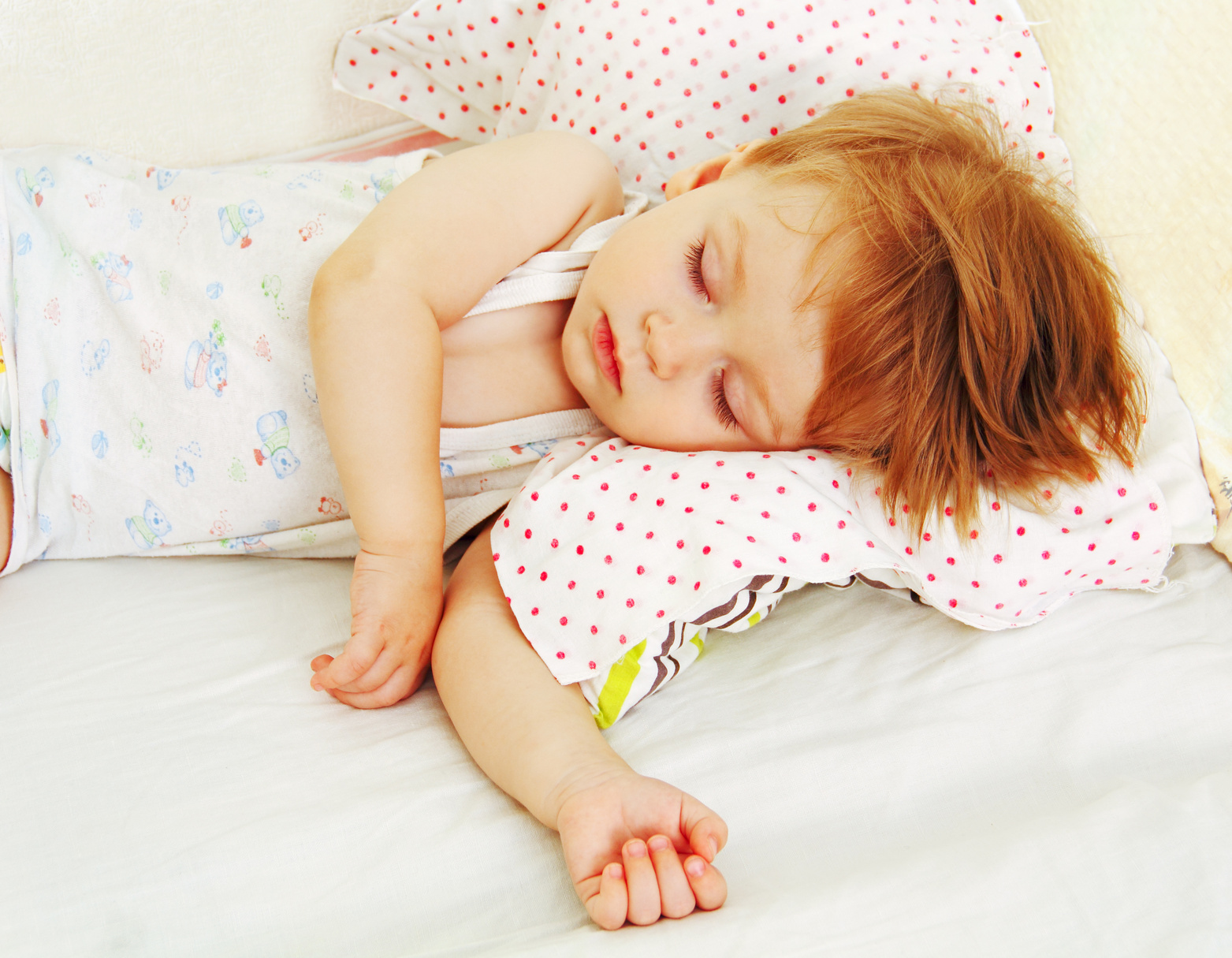

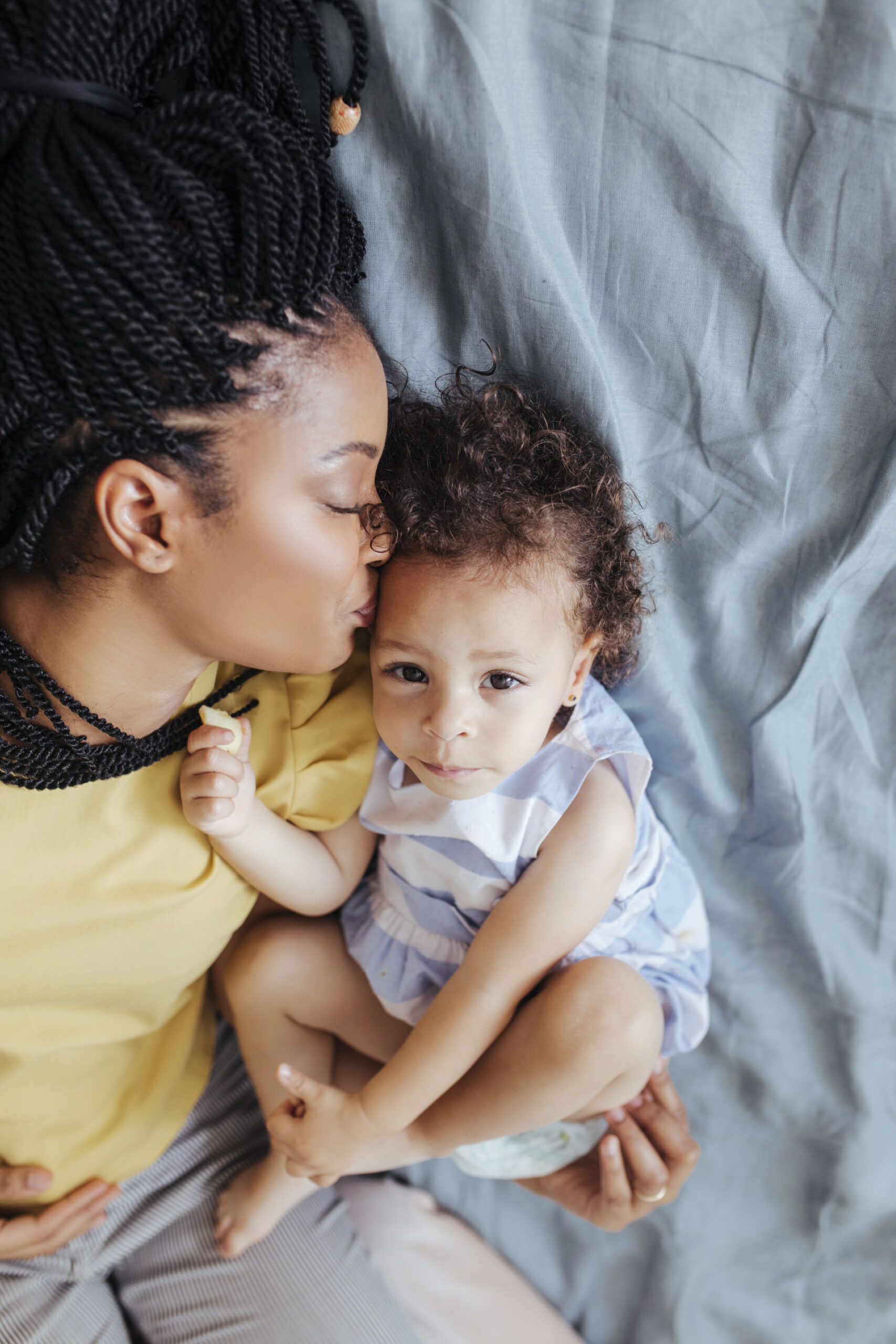
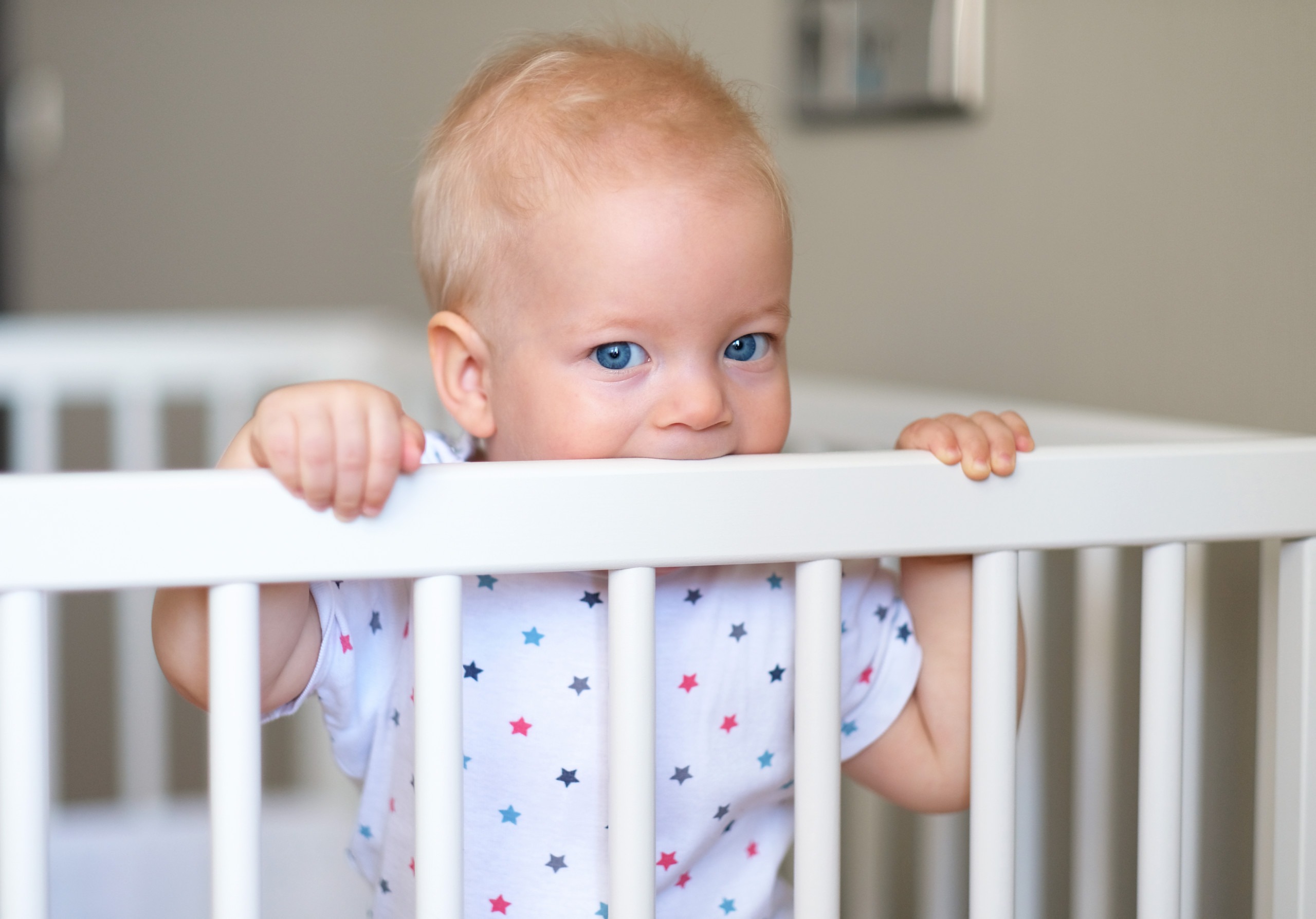

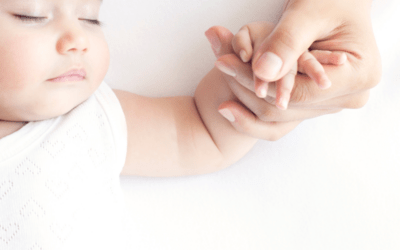


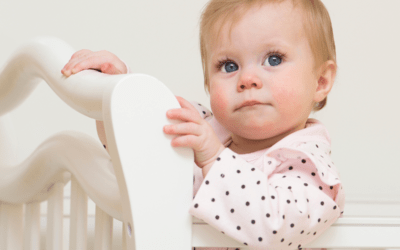

My baby is 22 months and she used to sleep through all night. I have implemented bedtime routines since she born, but from the 18 or 19 month she has this sleeping problems.
She’s having naps but also we somethings struggle and most of the time she has naps of 1 hour around 2 to 3 pm.
She used to have naps from 2 to 4pm and she used to go to bed at 8, but now she falls sleep at 9:30 pm and I keep implementing the same bedtime routine, which means since 8pm and with her dealing to sleep, she’s talking, playing and moving around her crib 😖
I’ll appreciate your advise
Hello Ana,
I would try to aim for 5 hours of awake time before her nap and then 5.5/6 hours before bed. Try to encourage her to nap for 90-120 minutes. Limit sugar and screen time before bed and try to get your little one outside for fresh air and physical activity. I am attaching some extra resources for you with helpful sleep tips!
https://www.babysleepmadesimple.com/exhausted-moms-survival-kit
https://www.babysleepmadesimple.com/2-year-old-sleep-problems-solutions
Best,
Alyssa, BSMS Support Team